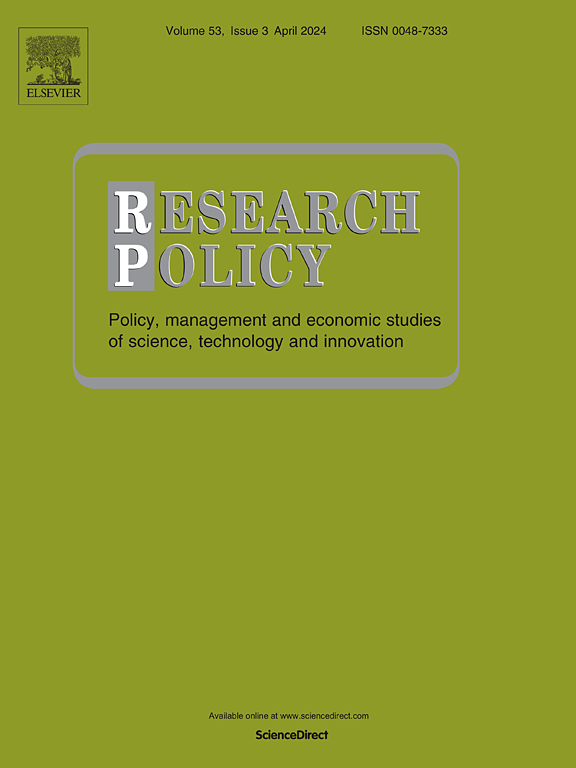Allocating time on scientific platforms in outer space: Evidence from James Webb Space Telescope Cycle 1-3 general observer programs
IF 8
1区 管理学
Q1 MANAGEMENT
引用次数: 0
Abstract
This study explores the determinants of allocated time on large, complex scientific platforms, with a focus on astronomy and the competition for scientific use of space telescopes. Time allocation has become part of an intense competitive landscape for researchers vying for use of these assets once they are launched and calibrated. Extant research on determinants of time allocation in this context is mixed and scholars have portrayed astronomy as a moral economy, with issues of fairness – including gender equality - and openness at stake. Analysis of data from the first three Cycles of accepted programs on the James Webb Space Telescope (JWST) using multivariable modelling shows allocated time to be consistently linked to size of the investigator team and whether the investigators waived exclusivity. The relationship between principal investigator (PI) gender and allocated time is found to vary over the three Cycles, as well as by program size and distance categories. PI affiliation and team geographic diversity have no consistent relationship with allocated time in regression tests although geographic diversity is correlated with team size. Findings are discussed against the backdrop of a moral economy in astronomy and the salience of issues relating to equality, diversity, and openness in scientific competition for large-scale research assets.
外太空科学平台上的时间分配:来自詹姆斯·韦伯太空望远镜周期1-3一般观察者计划的证据
本研究探讨了在大型、复杂的科学平台上分配时间的决定因素,重点是天文学和太空望远镜科学使用的竞争。时间分配已经成为研究人员激烈竞争的一部分,一旦这些资源被启动和校准,他们就会争夺这些资源的使用。在这种情况下,关于时间分配决定因素的现有研究是混杂的,学者们把天文学描绘成一种道德经济,涉及公平问题——包括性别平等——和公开性。利用多变量模型对詹姆斯·韦伯太空望远镜(JWST)前三个接受项目周期的数据进行分析,发现分配的时间始终与研究团队的规模以及研究人员是否放弃了排他权有关。研究发现,在三个周期中,主要研究者(PI)性别与分配时间之间的关系因项目规模和距离类别而异。在回归测试中,PI隶属关系和团队地理多样性与分配时间没有一致的关系,尽管地理多样性与团队规模相关。研究结果是在天文学道德经济的背景下讨论的,以及在大规模研究资产的科学竞争中与平等、多样性和开放性有关的突出问题。
本文章由计算机程序翻译,如有差异,请以英文原文为准。
求助全文
约1分钟内获得全文
求助全文
来源期刊

Research Policy
MANAGEMENT-
CiteScore
12.80
自引率
6.90%
发文量
182
期刊介绍:
Research Policy (RP) articles explore the interaction between innovation, technology, or research, and economic, social, political, and organizational processes, both empirically and theoretically. All RP papers are expected to provide insights with implications for policy or management.
Research Policy (RP) is a multidisciplinary journal focused on analyzing, understanding, and effectively addressing the challenges posed by innovation, technology, R&D, and science. This includes activities related to knowledge creation, diffusion, acquisition, and exploitation in the form of new or improved products, processes, or services, across economic, policy, management, organizational, and environmental dimensions.
 求助内容:
求助内容: 应助结果提醒方式:
应助结果提醒方式:


